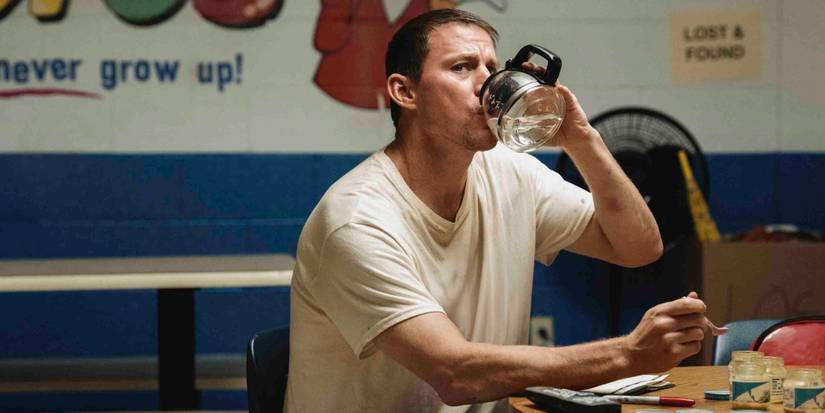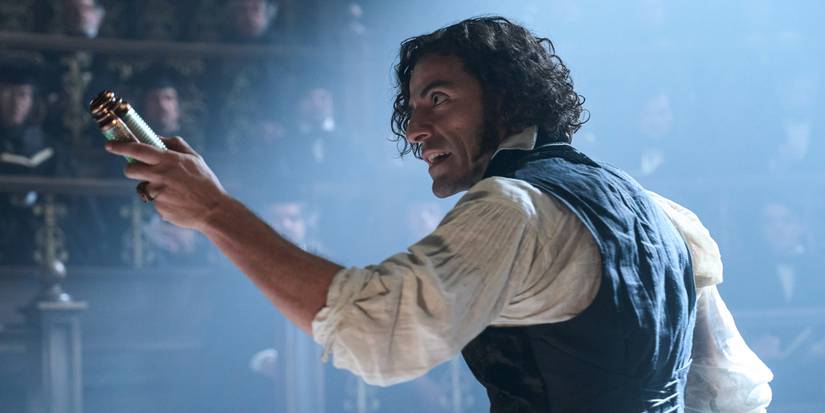Hollywood is as susceptible to trends as we consumers are. Just as butterfly clips and low-rise jeans come in and out of style, so does taste in movies. For most of the 21st century, episodic storytelling through big franchises has dominated multiplexes, while more modest and adult comedies, dramas, and romances have largely been relegated to streaming, if made at all. But the tide appears to be turning. Even when a superhero movie is good (see: Thunderbolts*, Superman, The Fantastic Four: First Steps), it doesn’t automatically become a billion-dollar blockbuster the way it might have six or seven years ago. Meanwhile, original stories intended for more mature audiences, such as Sinners and Weapons, appear to be gaining popularity.
If the Toronto International Film Festival is any indication, that trend will continue. TIFF, which celebrated its 50th anniversary this year, is the largest of the fall festivals and the most accessible to the general public, making it a great way to gauge the industry’s pulse. Some clear patterns emerged from the 2025 lineup. This crop of movies felt like a throwback to the Hollywood of the 1980s through the turn of the millennium, with competently made rom-coms, family dramas, crime thrillers, and literary adaptations returning to the silver screen en masse.
It’s been a rough 15 years or so for the romantic comedy. This longtime cinema staple, which brought us His Girl Friday, When Harry Met Sally, and My Big Fat Greek Wedding, stopped appealing to the broader public sometime in the aughts. Quality declined. Audience share shrank. That’s not to say there have been no good rom-coms in the interim. 2020’s Palm Springs and 2024’s Hitman stand out. However, this year’s TIFF was filled with classic examples of the genre, as well as comedies and dramedies that featured satisfying romantic subplots.
A24’s Eternity charmed the TIFF crowds with its whimsical world-building, joke-a-minute script, and charismatic leading trio of actors: Elizabeth Olsen, Miles Teller, and Callum Turner. Like Broadcast News meets The Good Place, Eternity finds Olsen’s Joan arriving in the afterlife, where both of her dead husbands are waiting for her. Turner’s Luke is a seemingly perfect Adonis who died young in the Korean War. Teller’s Larry is a curmudgeon with whom she has made over 60 years of memories. Both love stories are compelling in their own way, enough to bring tears to your eyes at least twice, but the real strength of Eternity is the hilariously accurate way it pokes fun at the mundanity of married life.
Roofman, starring Channing Tatum and Kirsten Dunst as a criminal hiding out in Toys “R” Us and the employee he falls in love with, is more of a romantic dramedy than an outright comedy, though its goofiest moments are among its high points. Tatum and Dunst’s natural chemistry makes the almost-impossible-to-believe love story ring true. Other TIFF films with various comedic couplings include Maude Apatow’s Poetic License, Aziz Ansari’s Good Fortune, and Chandler Levack’s Mile End Kicks.
Unresolved Daddy Issues
Romantic relationships are the subject matter of many movies, but another relationship — that of father and son — was explored in several TIFF films across a range of genres. In Hamnet, Paul Mescal’s William Shakespeare longs to get out from under the thumb and shady business practices of his abusive father. In Rental Family, Brendan Fraser’s Phillip has never dealt with the pain caused by his absentee dad. In Nuremberg, Rami Malek’s Dr. Kelly is desperate to be more important than his average Joe pops. Dead Man’s Wire is a true story about a father/son hostage situation. The Lost Bus, Tuner, & Sons, Our Father, and My Father’s Shadow all offer meditations on the father/son dynamic. Clearly, these writers and directors are working through some things.
Despite the fact that many of those films have the words Father and Sons in their titles, no TIFF film was so overtly about daddy issues as Guillermo del Toro’s Frankenstein. The movie monster master explained at the film’s TIFF premiere that while he’d wanted to make his version of Mary Shelley’s masterpiece forever, he felt he couldn’t do it justice until he was, himself, both a son and a father. Plot-wise, his Frankenstein stars Charles Dance (in full Tywin Lannister mode) as aristocratic physician, Leopold, who prefers his younger son (Felix Kammerer) to the elder Victor (Oscar Isaac). Starved for acceptance and affection, Victor inevitably becomes a bad dad to his creature (Jacob Elordi), and mayhem ensues.
Everybody Needs a Good Cry
If you happened to be in Toronto over the last two weeks, you may have overheard the sound of collective weeping coming from King Street. A handful of the festival’s most acclaimed films are, at their core, old-fashioned tearjerkers. However, while these movies will almost certainly make viewers’ eyes well up, they aren’t miserable for misery’s sake. Fan favorites like Hamnet, Rental Family, and Sentimental Value are ultimately cathartic. They gave audiences the good cry they needed in an uncertain world and hard times.
If you know anything about Hamnet, or the biography of William Shakespeare, for that matter, you know that a mysterious death struck his family and that he may have been estranged from his wife. Novelist Maggie O’Farrell and writer/director Chloé Zhao take the little we know about Shakespeare’s domestic life and fill in the blanks with a painterly piece of historical fiction that might actually help people process grief. Like Hamnet, Sentimental Value (which is also about daddy issues) delves into the relationship between generational trauma and art.
Rental Family is more than the saccharine, found-family story advertised by its trailer. A subplot involving an actor with dementia (Akira Emoto) sneaks up on you and starts the waterworks. On the whole, this year’s TIFF films were noticeably lacking in cynicism and more interested in reckoning with our troubles rather than merely commenting on them.
International Politics Take Center Stage
Speaking of troubles, a fair share of this year’s films were — as is usually the case — politically charged. Stories that serve as metaphors for the climate crisis or income inequality have been popular for a while now, and there were new iterations of them to be found at TIFF 2025. Chris Evans and Anya Taylor-Joy’s Sacrifice is about a movie star who gets kidnapped by an eco-terrorist. In Park Chan-wook’s No Other Choice and Gus Van Sant’s Dead Man’s Wire, economic anxiety pushes characters to the edge.
But the films that garnered more attention were the ones that dealt more literally with the politics of the moment. Jafar Panahi’s It Was Just an Accident illustrates the brutality of the Iranian government. The Secret Agent is a thriller set amidst the Brazilian military dictatorship of the 1970s. Nuremberg takes audiences behind the scenes of the Nazi trials, but has clear parallels to the modern day. The Wizard of the Kremlin is about the rise of Vladimir Putin.
Most notably, several films related to Palestine and Israel were featured at the festival. Palestine 36 and The Voice of Hind Rajab received praise, but a documentary about an Israeli general, The Road Between Us: The Ultimate Rescue, became a controversy in and of itself. TIFF originally agreed to show the film, then withdrew it, citing legal and security concerns, then reversed that decision after a backlash from groups claiming censorship. Ultimately, the film did screen, with protesters, who were present throughout the festival, gathered outside.





